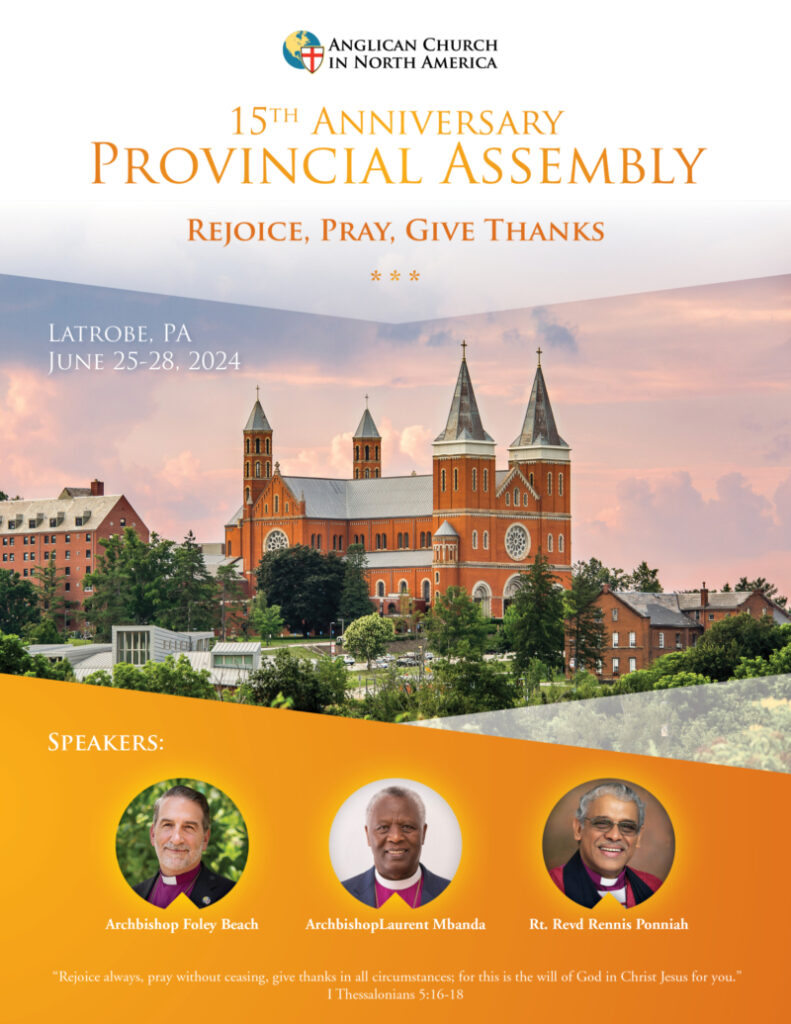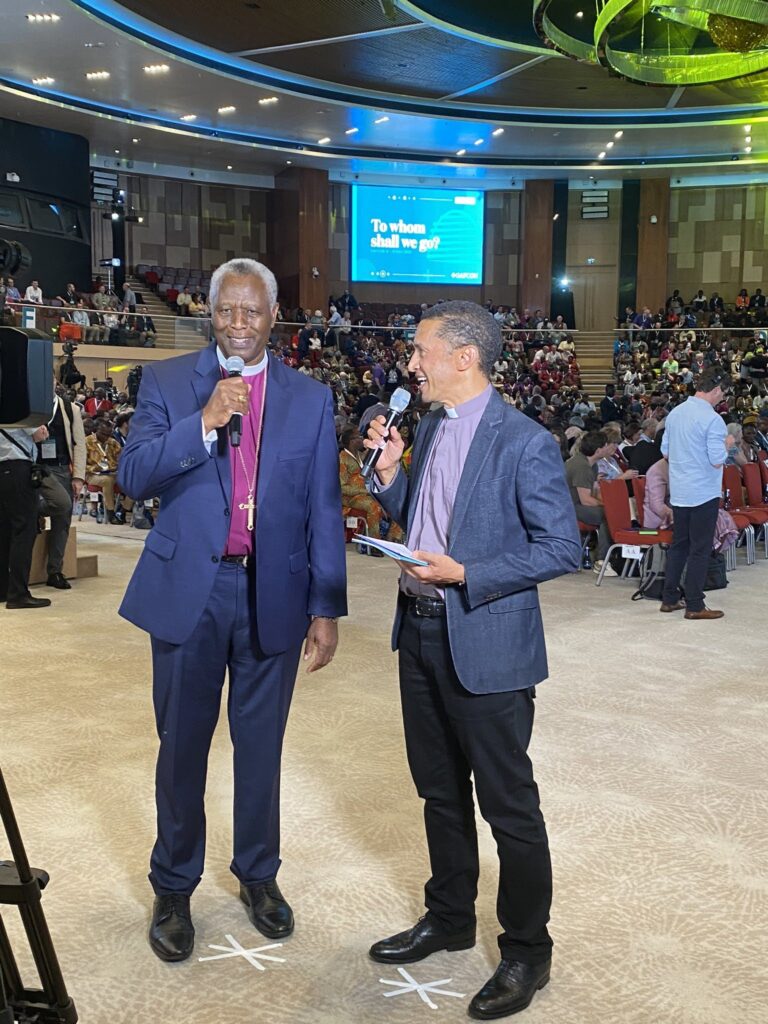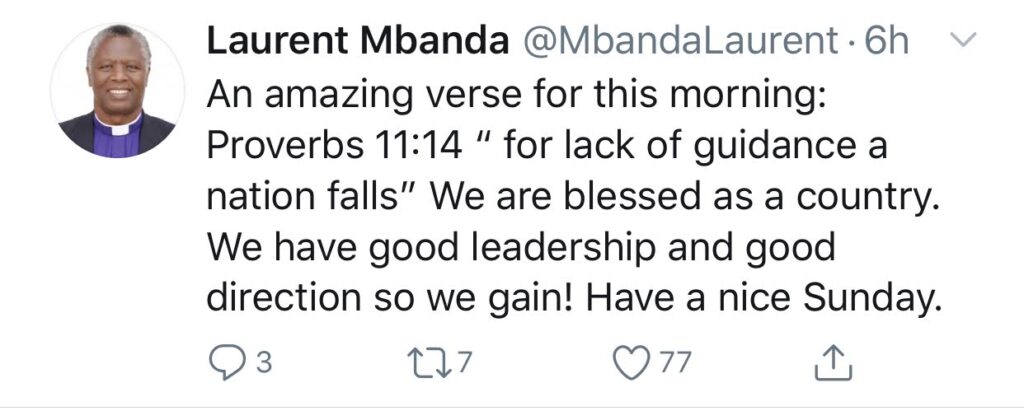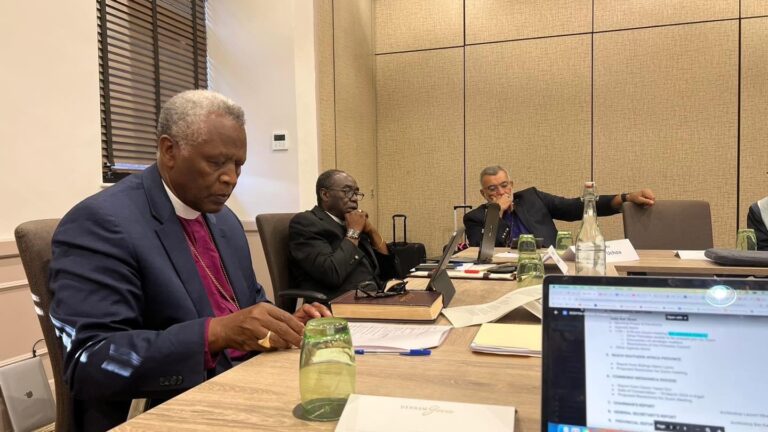
In the past I wrote about why it was a mistake to invite Ravi Zacharias and Archbishop Laurent Mbanda to the ACNA’s Provincial Assembly in 2019. The Zacharias mistake is now obvious for the world to see, although I am not aware of ACNA ever apologizing for what they did. Mbanda however has gone from strength to strength, having become the Chairman of GAFCON. Why do I object to Mbanda’s leadership and presence at the Assembly? For theological reasons.

Theology
I base my objections on the nature of the Rwandan regime, and Mbanda’s silence in the face of this evil regime. First, some theological foundations:
Tyrannical governance is unjust, since it is ordered to the private good of the ruler, not to the common good, as the Philosopher makes clear in the Politics and the Ethics. And so disturbances of such governance does not have the character or rebellion, except, perhaps, in cases where the tyrant’s governance is so inordinately disturbed that the subject people suffer greater harm from the resulting disturbance than from the tyrant’s governance. Rather, tyrants, who by seeking greater domination incite discontent and rebellion in the people subject to them, are the rebels. For governance is tyrannical when ordered to the ruler’s own good to the detriment of the people.
§ St. Thomas Aquinas, II-II, Question 42
Consent or communion with others in their sins is opposed to admonition, Eph. 5:7, 11.
§ William Ames in his The Marrow of Theology
A man is said to be partaker of another’s sin in nine ways, indicated by the following: Command, counsel, consent, flattery, retreat, participating, nodding, not opposing, not making public.
Or, in sum, consent is given to sinners by counseling, defending, helping, permitting what we might hinder, and being silent when we might profitably speak, Rom. 1:32. (305)
§ Killing and even hurting are unjust when they are not done by a just authority, that is, a public authority or its equivalent. They are also unjust when done in an unjust cause or without just order, or with an unjust intention. These four conditions must always be met for any killing to be justified. If any one is lacking, homicide is committed. (316)
§ Neither is there any human power which can give sufficient authority to a subject to slay a man whom he knows to be innocent and undeserving of death. (316)
Another evidence of this theology is Ambrose’s treatment of Theodosius I after his massacre of the citizens of Thessalonica for an uprising.
Rwanda
I will not elaborate the crimes of Rwanda’s leadership under Dictator Paul Kagame, you can run a search and see for yourself. But I would summarize:
- Rwanda is a totalitarian/authoritarian state.
- Rwanda tortures its own citizens.
- Opposition party leaders are beheaded or killed.
- Dissent is crushed.
- Rwanda stirs up war for the third time in the DRC.
- Rwanda does not allow for the freedom of the church.
- Tutsis oppress Hutus.
Mbanda
Archbishop Mbanda has offered no criticism of Paul Kagame, in fact he has praised him. I have posts on him here, here, and here. Mbanda frequently praises this evil dictator and admits that he was in contact with his party as far back as 1988:
I had become aware of the RPF in 1988 when the Rwandan diaspora met in Washington, DC, and I attended as part of the community of Rwandans living outside our homeland. A number of the RPF cadre were at that gathering, and I heard their plan that, one day, it would be possible to repatriate all Rwandans.
Barefoot to Bishop, 109-110



GAFCON takes the correct, orthodox stand on some Biblical issues, but Mbanda is an unfortunate setback because he does not stand up to evil in his own country, in fact he vocally supports an evil man.

